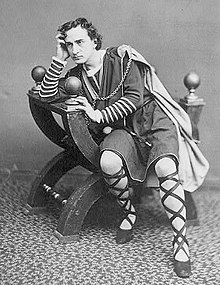Hamlet By William Shakespeare Summary, here we will discuss about how this classic has lived through its time and went around from reader to reader and affected everyone who has came upon it. William Shakespeare’s Hamlet is a tragic play in the late 16th century. It portrays the story of Prince Hamlet, who is summoned home to Denmark after his father, the king, dies.
Upon arrival, Hamlet discovers that his uncle Claudius has taken the throne and married his mother, Gertrude. Hamlet is then visited by his father’s ghost, who reveals that Claudius murdered him and urges Hamlet to seek revenge.
The play is known for its complex characters, intricate plot, and themes of betrayal, revenge, and madness. It is also famous for its soliloquies, including the famous “To be or not to be” speech.
Hamlet is one of Shakespeare’s most famous plays and drama which has been performed countless times worldwide. It has been adapted back to back into numerous films, television shows, and other works of art.
List Of The Main Characters in Hamlet
Here is a list of the main characters in Hamlet:
- Hamlet: The Prince of Denmark is the title character and the story’s protagonist. He is cynical and bitter, filled with cynicism and hatred towards his deceitful uncle’s plotting and combined with disgust for his own mother’s sexuality.
- Claudius: The character I’m referring to is the King of Denmark, Hamlet’s uncle and the play’s main antagonist. The person in question is a politician who is highly ambitious and known for being strategic and calculating in their actions while also being primarily driven by his sexual appetites and overbearing lust for power.
- Gertrude: Claudius, who is the current King of Denmark, has recently married Hamlet’s mother, who is also the Queen of Denmark. She is more concerned with obtaining affection and status than moral rectitude or truth.
- Polonius: The Lord Chamberlain in Claudius’s court was an old, pompous, and conniving man. The man being referred to is the father of both Laertes and Ophelia.
- Ophelia: Hamlet is in love with Polonius’s daughter, who is a beautiful young woman. She obediently follows the commands of her father and brother, Laertes, portraying an innocent and sweet disposition.
- The Ghost: Hamlet’s deceased father’s ghost. He claims to have been murdered by Claudius and calls upon Hamlet to avenge him.
- Horatio: Horatio is a dear friend of Hamlet’s who also studied with the prince at the University of Wittenberg. Throughout the play, he remains loyal and helpful to Hamlet.
- Fortinbras: The young Prince of Norway, whose father was killed by Hamlet’s father, seeks revenge.
Theme Found In The Hamlet
The play Hamlet by William Shakespeare explores several themes, including:
The impossibility of certainty:
Hamlet is a play that poses many questions that other sports would take for granted. Can we have specific knowledge about ghosts? Is the spirit a deception or an actual apparition? Does the ghost know accurately about its death, or is it deluded?
When there are no witnesses to a crime, it can be challenging to determine the facts with certainty.
Can we know anything about the afterlife? Hamlet’s failure to act appropriately has led many to see the play as a commentary on indecisiveness. The play highlights the uncertainties and unknowns that underpin our lives and relationships.
The complexity of action:
The theme of action is closely linked to the music of certainty. Any uncertainty can often hinder the ability to take action. In Hamlet, rational, emotional, ethical, and psychological factors influence the question of how to act.
Hamlet himself expresses doubt about the possibility of acting with control or purpose. When he takes action, he tends to do so impulsively, without considering the consequences, and violently.
The mystery of death:
In the aftermath of his father’s murder, Throughout the play, Hamlet explores death from various perspectives due to his obsession with the concept.
The theme of revenge and justice in Hamlet is closely linked to death, both the cause and the consequence of revenge. The murder of King Hamlet by Claudius triggers Hamlet’s quest for revenge, which ultimately ends with Claudius’s death.
Appearance vs reality:
The characters in Hamlet constantly struggle with the difference between what appears natural and what is real. For example, Hamlet’s madness is an act to achieve his goals. Claudius seems to be a good king, but he is a murderer.
Revenge:
The play revolves around the theme of revenge as a central element. The ghost of King Hamlet urges his son to seek revenge against Claudius for his murder. However, as Hamlet struggles with his sanity and conscience, he delays taking action against Claudius until it’s too late.
How Is Hamlet As A Revenge Tragedy?
Hamlet is a play that is often categorized as a revenge tragedy. The genre of revenge tragedy was popular in the Elizabethan and Jacobean eras and typically features a protagonist who seeks revenge for a real or imagined injury.
In Hamlet, the title character is consumed by his desire for revenge against his uncle Claudius, who he believes murdered his father and married his mother.
However, unlike other revenge tragedies, Hamlet faces no obstacles to his desire for revenge and is in a position to kill Claudius from the beginning.
The play explores several themes, including the impossibility of certainty, the complexity of action, the mystery of death, appearance vs reality, and revenge.
The theme of revenge is central to the play, with Hamlet’s father’s ghost urging him to seek revenge against Claudius for his murder. However, as Hamlet struggles with his sanity and conscience, he delays taking action against Claudius until it’s too late.
In addition to Hamlet’s quest for revenge, other characters in the play also seek vengeance. Laertes seeks revenge against Hamlet for killing his father, while Fortinbras seeks revenge against Denmark for killing his father.
Overall, Hamlet is a complex play that defies easy categorization. While it shares many characteristics with other revenge tragedies, it also subverts many of the genre’s conventions and explores themes unique to Shakespeare’s work.
Some Of The Most Memorable Hamlet Quotes
Here are some memorable quotes from Hamlet:
“Doubt thou the stars are fire; Doubt that the sun doth move; Doubt truth to be a liar; But never doubt I love.”
This quote is from the play Hamlet by William Shakespeare. It is spoken by Polonius, who reads a letter from Hamlet to Ophelia. Hamlet expresses his deep and undoubting love for Ophelia and compares it to the fundamental truths of the world, such as the stars being fire and the sun moving across the sky.
However, these truths are false in modern science, which adds an ironic twist to the quote.
“There is nothing good or bad, but thinking makes it so.”
This quote is from the play Hamlet by William Shakespeare. It is spoken by Hamlet in Act II, Scene 2. Hamlet is contemplating his imprisonment by Denmark and the King, as well as by his mind.

He wishes he could ignore his knowledge and be ignorant, but he can’t. “This quote emphasizes the significance of one’s perspective in shaping their perception of things.” Our minds shape our perception of things as good or bad.
“This above all: to thine own self be true, And it must follow, as the night the day, Thou canst not then be false to any man.”
This quote is from the play Hamlet by William Shakespeare. It is spoken by Polonius, who reads a letter from Hamlet to Ophelia. Hamlet expresses his deep and undoubting love for Ophelia and compares it to the fundamental truths of the world, such as the stars being fire and the sun moving across the sky.
However, these truths are false in modern science, which adds an ironic twist to the quote.
“To be, or not to be: that is the question: Whether ’tis nobler in mind to suffer The slings and arrows of outrageous fortune, Or to take arms against a sea of troubles, And by opposing end them?”
This quote is from the play Hamlet by William Shakespeare. It is spoken by Hamlet in Act III, Scene. Hamlet is contemplating his existence and whether it is better to live or die. He is considering the pros and cons of life and death and whether it is better to endure the hardships of life or to end them by taking one’s own life.
The quote has become famous for its philosophical nature and exploration of the human condition.
“Though this be madness, the method isn’t.”
This quote is from the play Hamlet by William Shakespeare. Polonius speaks it as an aside. The phrase means that there is a sensible reason for something that seems crazy.
It is commonly used to suggest that there is a method to someone’s madness or that there is a reason behind apparent folly or disorder.
“Brevity is the soul of wit.”
This quote is from the play Hamlet by William Shakespeare. It is spoken by Polonius in Act II, Scene 2. The phrase means that being brief and concise is the essence of intelligence.
Hamlet By William Shakespeare Summary On Its Finale
The finale of Shakespeare’s play, Hamlet, culminates the themes of revenge, justice, and the tragic hero’s journey. In the final scene, the violence brewing throughout the space bursts with dizzying speed that makes one lightheaded.
Plays Characters drop one after the other, poisoned, stabbed, and executed. The theme of revenge and justice culminates in Hamlet’s killing of Claudius.

Hamlet raises more questions than it answers. Shakespeare draws a final circle around his unfixed identity by avoiding any irrevocable ‘fixing’ of the prince’s identity, canonizing it as an icon of an early modern de-centered self.
The tragic ending of Hamlet extracts it from the networks of instrumental power that had entrapped Falstaff and Hal and threatened to entrap Hamlet in their one-dimensionality.
The conclusion of Hamlet is ambiguous, leaving readers to ponder whether or not Hamlet’s struggles with self-doubt are resolved. Throughout the play, Hamlet deliberates on his revenge and suicide, ultimately achieving both at the end.
However, Hamlet’s psychological state when he perishes is unclear. The ending of the play holds significant political implications. One of the subplots revolves around an ongoing dispute between Denmark and Norway.
The ending of the play holds significant political implications.
After the king’s death, his son, Prince Fortinbras, intends to invade Denmark. In Act Two, Claudius learns about Fortinbras’s army being redirected to Poland, and we do not hear about Fortinbras for a while.
Meanwhile, the ongoing chaos in Elsinore gradually undermines the authority of the ruling family of Denmark. The transition from King Hamlet to his brother Claudius left Denmark vulnerable.
In conclusion, Of the Shakespeare’s Hamlet
Shakespeare’s Hamlet is an interlocking play that explores themes such as revenge, justice, identity, and politics through its characters’ journeys. The finale is a culmination of these themes, leaving many questions unanswered while providing closure to others.

